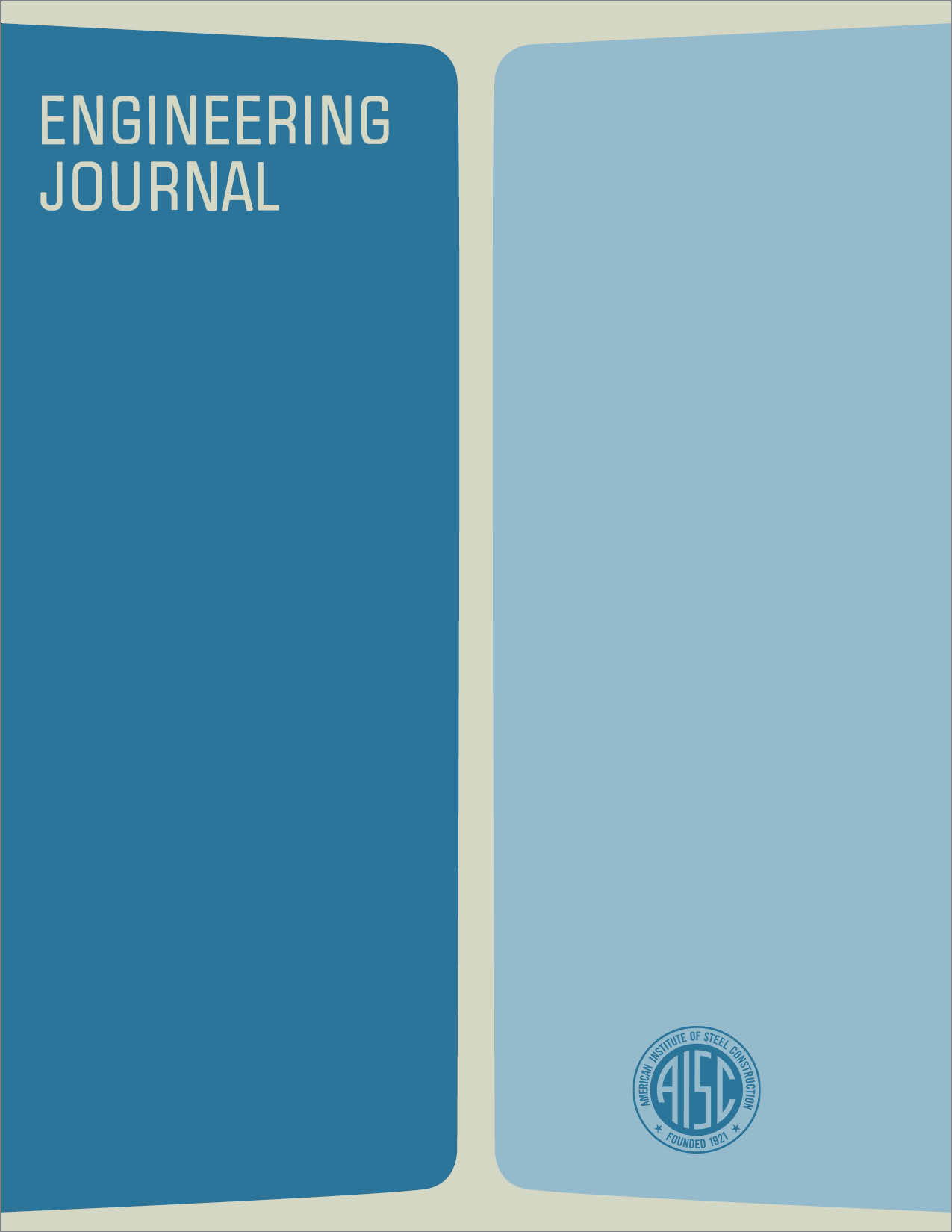Tests of Steel Moment Connections
DOI:
https://doi.org/10.62913/engj.v1i4.1241Abstract
This report has been written to consolidate and discuss the results of some of the more important studies of rigid moment connections in building frames, and to suggest some possibleareas of future work. Three types of connecting media are considered: welding, riveting and bolting. In turn, three types of connections receive primary attention: the corner connection, the beamto- column connection, and the beam splice. Primary attention is focused upon the moment capacity and deformation capacity of these connections. The criterion used in this report is the ability of the connection to undergo inclastic strain resulting in joint rotation many times that associated with initial yielding, while providing a predictable resisting moment. The tests reported herein were conducted at the following schools: Cambridge University, Cornell University and Lehigh University. Investigations of significance conducted at other schools are also briefly considered. The most important result of these tests is that for all properly designed and detailed welded and bolted moment connections the plastic moment of the adjoining member was reached and large plastic rotation capacities were observed. There were no premature failures except those which could have been predicted and prevented.

